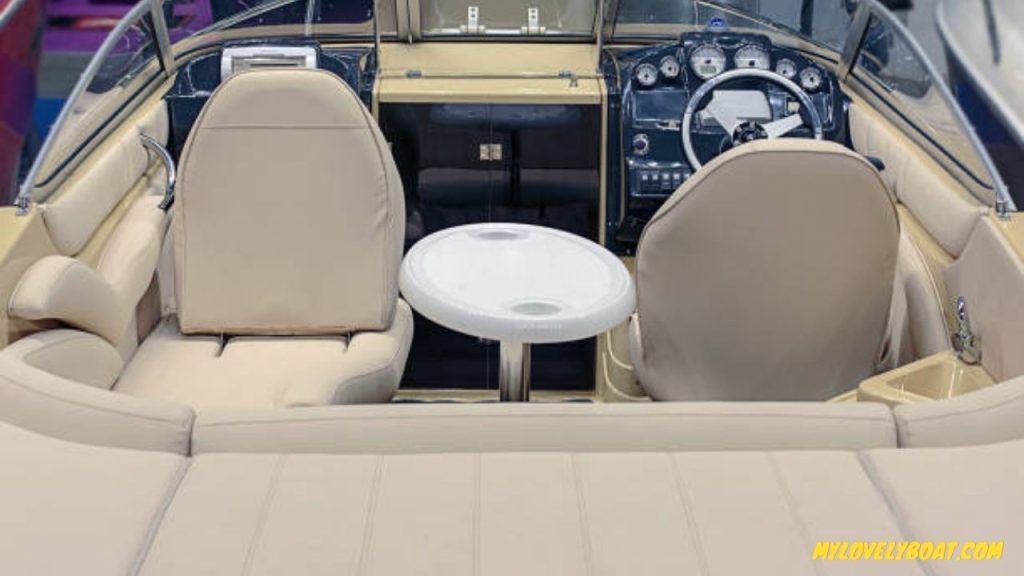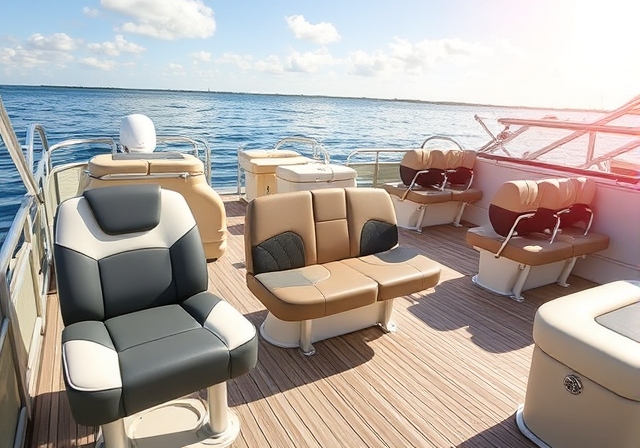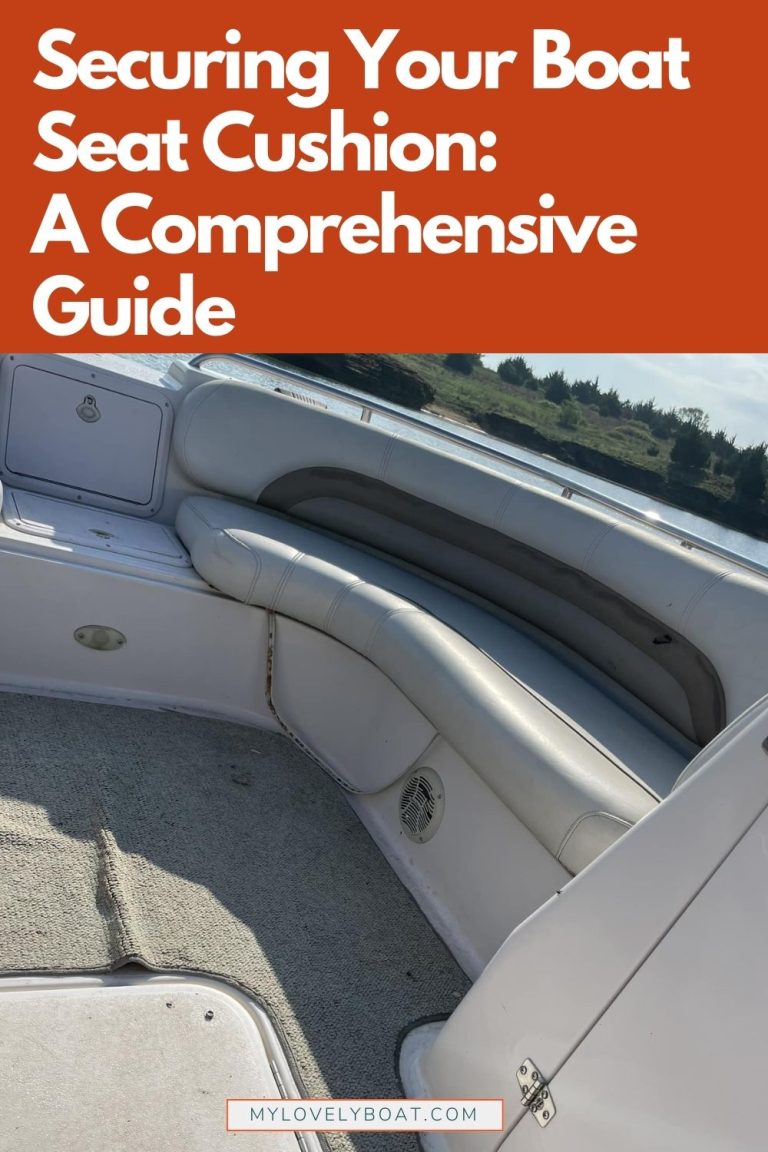
A comfortable and sturdy boat seat is an essential component of any enjoyable boating experience. Whether you’re fishing, cruising, or just enjoying a day on the water, the right boat seats can make all the difference in your comfort and satisfaction.
Installing boat seats may seem like a daunting task, but with the proper tools, materials, and guidance, you can easily upgrade your boat’s seating arrangement like a pro.
This comprehensive guide will walk you through the process of choosing, assembling, and installing boat seats to ensure a successful and enjoyable boating experience.
Guidelines for Choosing the Right Boat Seats and Tools for Installation
Before you start the installation process, choosing the right boat seats for your watercraft is essential. Consider the following factors when selecting your boat seats:
- Boat Style and Intended Use: Ensure that the seats match your boat’s style and the activities you plan to engage in while on the water. For example, fishing boats may require swivel seats for easy manoeuvrability, while a leisure boat may need more comfortable, cushioned seating.
- Materials: Opt for marine-grade materials that resist water damage, UV exposure, and mildew. Vinyl, for example, is a popular choice for boat seats due to its durability and ease of cleaning.
- Design and Features: Look for seats that offer additional features, such as storage compartments, cup holders, or even built-in coolers. These can enhance the functionality and convenience of your boat.
8 Tips for Installing Your Boat Seats Like a Pro

1. Gather the Necessary Tools
Once you’ve selected the perfect boat seats, it’s time to gather the necessary tools and materials for installation. Here’s a list of common tools and hardware you’ll need for the job:
Having all the necessary tools and materials ready before you begin the installation process will help ensure a smooth and efficient project. Cost: Around $150
2. Remove the Old Seats
If you’re replacing existing boat seats, the first step is to carefully detach them from the boat. This may involve unscrewing or unbolting the seats from the mounting hardware or removing the entire mounting system if it’s not compatible with your new seats. Be sure to keep track of any hardware you remove, as you may need it for the installation of the new seats.
Once the old seats are removed, inspect the mounting surface for any damage or wear. If necessary, repair or replace any damaged areas to ensure a secure and stable foundation for the new seats. Additionally, clean and prepare the mounting surface by removing any dirt, debris, or old adhesive to create a clean and level surface for the new seats.
3. Assemble the New Seats
Depending on the type of boat seats you’ve chosen, some assembly may be required before installation. Follow the manufacturer’s instructions to assemble the seats, making sure all parts are secure and properly aligned. If your seats include swivel or pedestal mounts, be sure to attach these components according to the manufacturer’s guidelines.
4. Determine the Mounting Location
Before you can install the new boat seats, you’ll need to determine the ideal mounting location(s) on your boat’s deck. Factors to consider when choosing a location include weight distribution, visibility, and accessibility. For example, you may want to position the seats near the center of the boat for improved stability or closer to the helm for easy access to controls.
Using a measuring tape, measure and mark the desired location(s) for the new seats, taking into account the size and shape of the seats as well as any mounting hardware. Be sure to double-check your measurements before proceeding to ensure proper alignment and spacing.
5. Install the Mounting Hardware
With the mounting locations determined, it’s time to install the mounting hardware for your new boat seats. If your seats utilize a pedestal or swivel mount, you may need to drill pilot holes in the deck to accommodate the mounting bolts. Be sure to use a drill bit slightly smaller than the diameter of the bolts to prevent the holes from being too large.
Once the pilot holes are drilled, attach the mounting brackets or plates to the boat using the appropriate bolts, nuts, and washers. Tighten the hardware securely, ensuring that the mounts are level and properly aligned with the marked locations. If your boat seats include a swivel or pedestal mount, attach these components to the installed mounting hardware according to the manufacturer’s instructions.
6. Attach the Boat Seats
With the mounting hardware in place, it’s time to attach the new boat seats. Carefully align the seats with the installed mounting hardware, making sure that the holes in the seat base line up with the bolt holes in the mounting brackets or plates. Secure the seats using the provided bolts, nuts, and washers, tightening them securely to ensure stability.
Once the seats are attached, test them for stability by applying pressure to various points on the seat and observing any movement or wobbling. If necessary, adjust the mounting hardware or tighten the bolts to eliminate any instability.
8. Final Inspection and Maintenance
After the boat seats are securely installed, perform a final inspection to ensure that all parts are properly attached and no hardware is loose or missing. Test the seats for functionality and comfort, making any necessary adjustments to the position or angle of the seats.
To ensure the longevity of your new boat seats, it’s important to regularly maintain them and their mounting hardware. This may include cleaning the seats with a mild soap and water solution, lubricating any moving parts, and periodically checking the tightness of bolts and nuts.
Finishing Touches
With the new seats installed, follow these final steps to complete the installation process:
Securing Any Loose Bolts or Fasteners
- Double-check all bolts and fasteners to ensure they are secure and tight. Loose hardware can lead to instability and potential damage to the boat or seats.
Cleaning Up the Workspace
- Remove any debris, tools, or materials from the workspace and store them appropriately.
Inspecting the New Seats for Quality and Comfort
- Finally, inspect the new seats for quality and comfort. Ensure they are securely installed, free of defects, and comfortable for all passengers and crew members.
Read More About Boat Seat:
- 10 Tricks to Keep Your Boat Seats Looking New
- How to Store Your Boat Seat Off-Season (10 Ways)
- The Ultimate Guide to Deferent Types of Boat Seats
- Securing Your Boat Seat Cushion: A Comprehensive Guide
- Make Your Boat Seats Less Slippery: (8 Hacks)
- Choosing the Best Boat Seat Cushions for You Need[6 Tips]
FAQ

How can I ensure that my boat seats are securely installed?
To ensure a secure installation, follow the manufacturer’s guidelines for drilling holes and fastening the seats to the boat. Use stainless steel hardware for corrosion resistance and tighten bolts or screws securely, but avoid overtightening. Additionally, apply marine sealant around mounting holes to prevent water intrusion.
How do I correctly wire and connect electrical components in boat seats?
Consult the seat manufacturer’s guidelines for connecting electrical components, and use marine-grade wiring and connectors for durability. Secure and organize wiring to prevent damage or interference, using cable ties or clips to keep wires in place.
How can I adjust my boat seats for maximum comfort and performance?
Ensure your boat seats are level and properly aligned with the boat’s surface. If your seats have adjustable height and angle settings, adjust them for optimal comfort and visibility. Test the movement and functionality of the seats, including any swivel or reclining features, to ensure smooth and secure operation.
How do I maintain my boat seats to ensure their longevity?
Regularly clean your boat seats with mild soap and water or a marine-grade cleaner to remove dirt, debris, and residue. Use a UV protectant spray to prevent sun damage and fading. Inspect the seats periodically for any signs of wear or damage and address issues promptly to prevent further deterioration.
Can I install boat seats or hire a professional?
If you’re comfortable using tools and following instructions, install boat seats yourself. However, if you need more clarification or experience in such tasks, hiring a professional to ensure a safe and secure installation may be best.
How often should I replace my boat seats?
The lifespan of boat seats can vary depending on materials, usage, and maintenance. Regularly inspect your boat seats for signs of wear or damage, and replace them as needed to ensure comfort, safety, and aesthetics.

I am a freelance writer passionate about watersports and the great outdoors. I have many years of experience in the marine industry, and I enjoy sharing my knowledge and expertise with others so that they can get the most out of their boating experiences. I like fishing, kayaking, and exploring new destinations by boat whenever I have time. Contact Us: Linkedin





